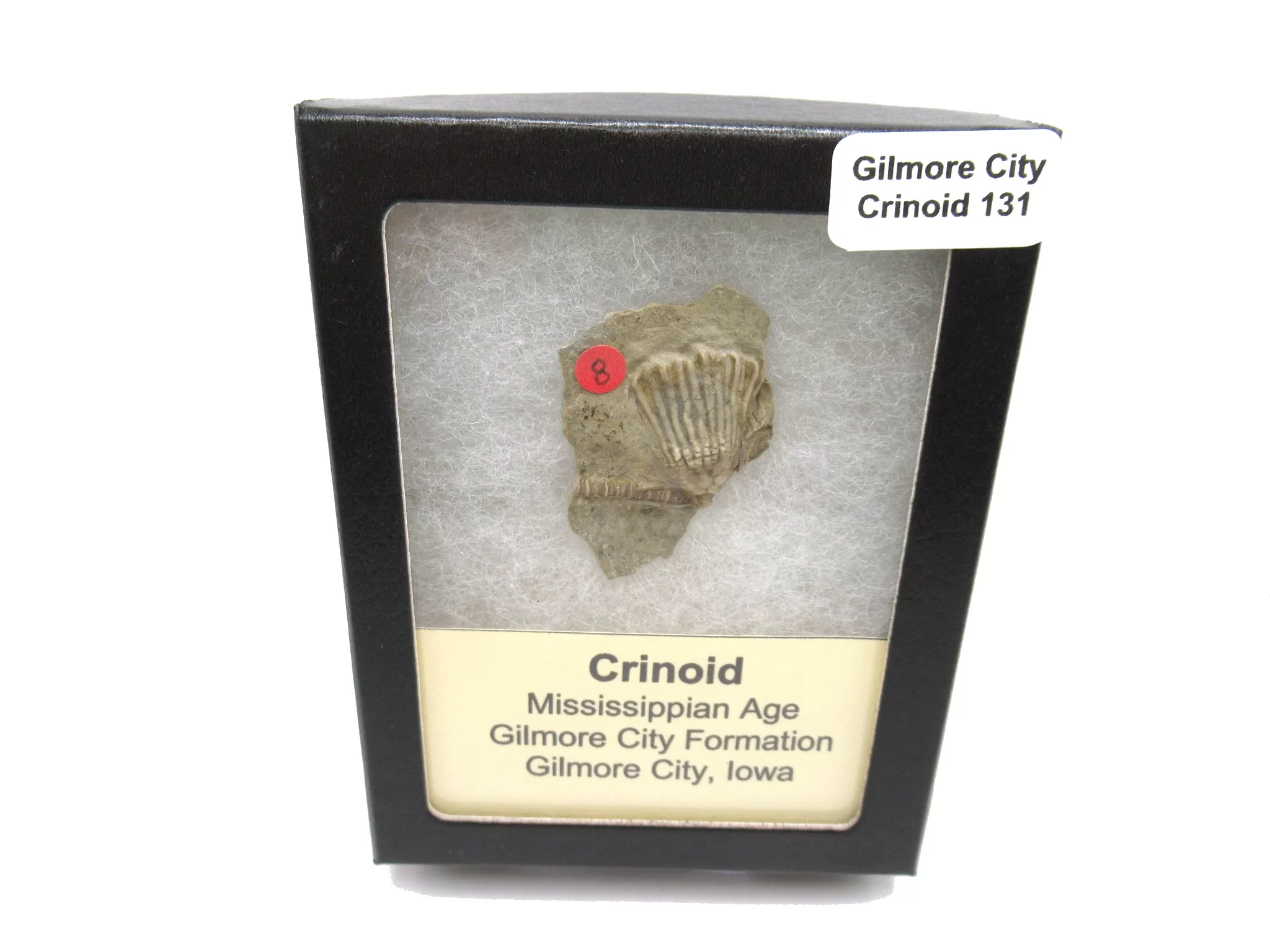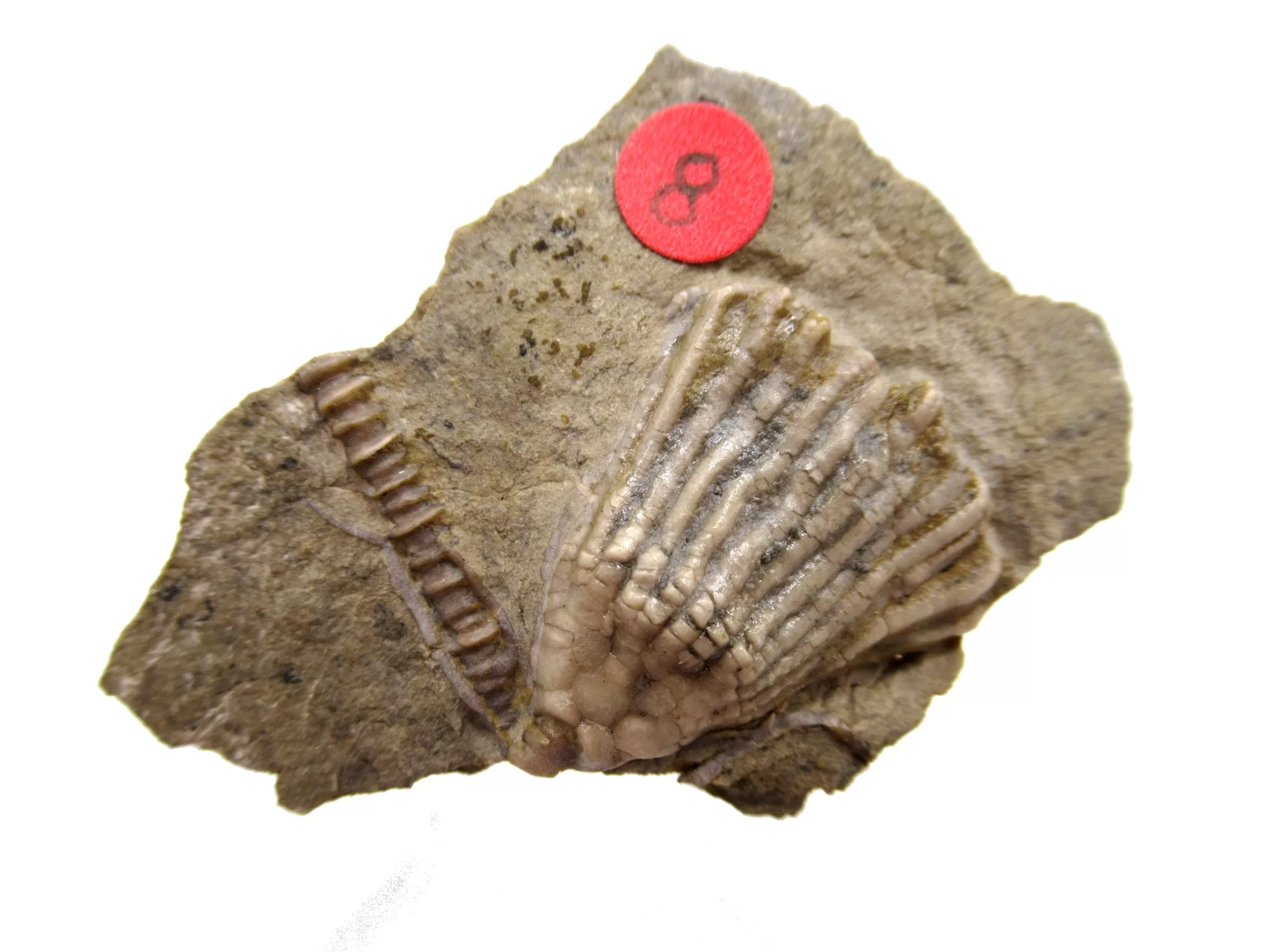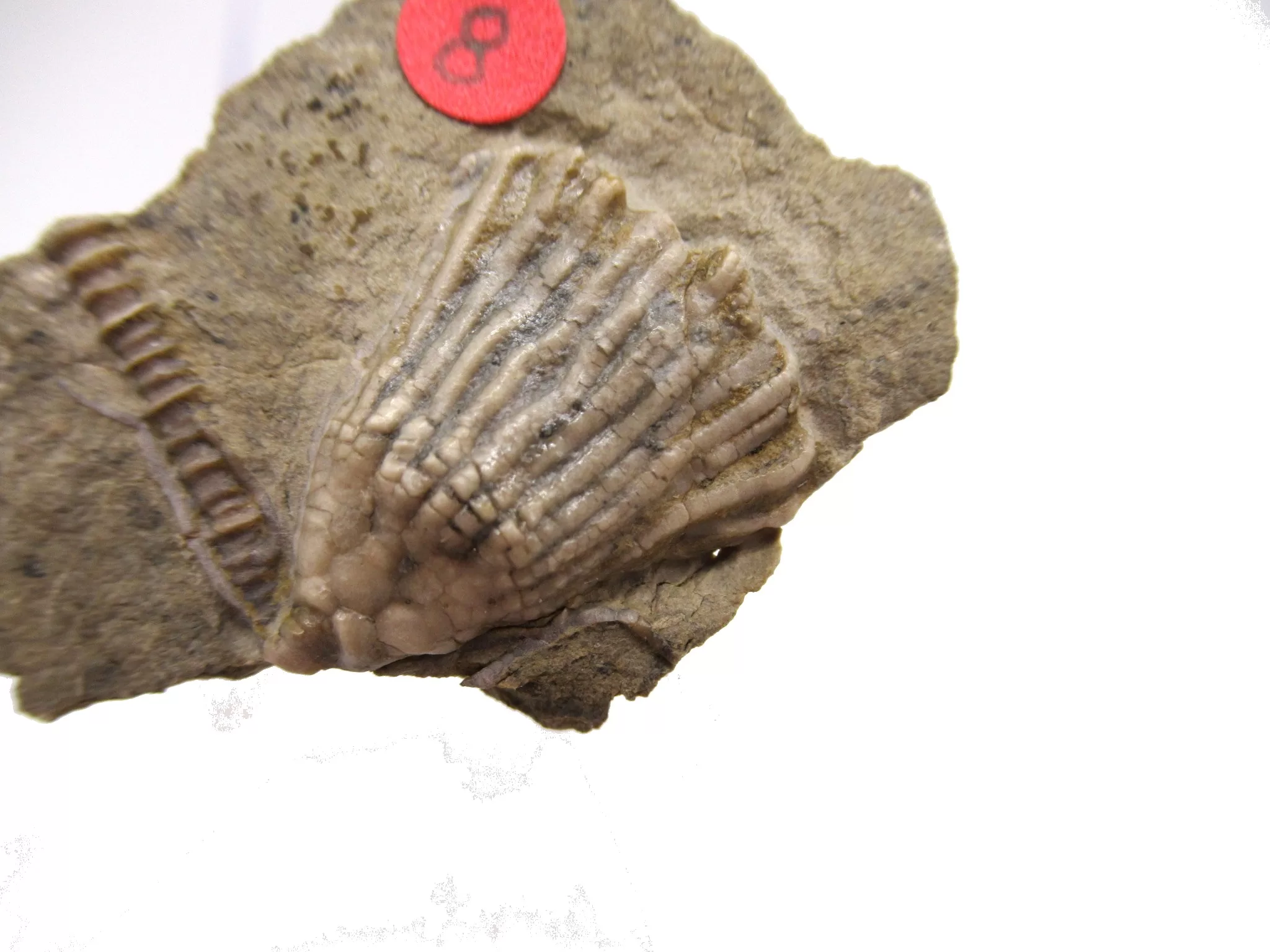Description
GILMORE CITY IOWA CRINOID
- Gilmore City Crinoid
- The RED DOTS with Numbers are to identify the various Crinoids – SEE ID LIST FOR IDENTIFICATION
- Mississippian Age
- Gilmore City Formation
- Gilmore City, Iowa
- This plate of Crinoids measures 1.71″ wide and will come in the 3.25″ x 4.25″ Riker Mount with Label as Shown. The name of the crinoid will also be on a label on the back of the Riker Mount.
- More Crinoid Fossils for Sale
WHAT IS THE GILMORE CITY LIMESTONE?
The Gilmore City Limestone is a geologic formation in Iowa. It preserves fossils dating back to the Carboniferous period.
WHERE IS GILMORE CITY?
The Gilmore City Formation of north-central Iowa represents an upward-shoaling sequence of carbonate rocks ranging from normal marine conditions in the lower portion of the section to prograding oolite shoals (a sedimentary rock formed from ooids, spherical grains composed of concentric layers) at the top. At most exposures, the formation contains an abundant and diverse fossil fauna consisting mainly of crinoids, echinoids and gastropods
WHAT ARE CRINOIDS?
Crinoids are marine animals that make up the class Crinoidea of the echinoderms (phylum Echinodermata). The name comes from the Greek word krinon, “a lily”, and eidos, “form”. They live in both shallow water and in depths as great as 9,000 meters (30,000 ft).
Those crinoids which in their adult form are attached to the sea bottom by a stalk are commonly called sea lilies. The unstalked forms are called feather stars or comatulids.
Crinoids comprise three basic sections; the stem, the calyx, and the arms. The stem is composed of highly porous ossicles which are connected by ligamentary tissue. The calyx contains the crinoid’s digestive and reproductive organs, and the mouth is located at the top of the dorsal cup, while the anus is located peripheral to it. The arms display pentamerism or pentaradial symmetry and comprise smaller ossicles than the stem and are equipped with cilia which facilitate feeding by moving the organic media down the arm and into the mouth









